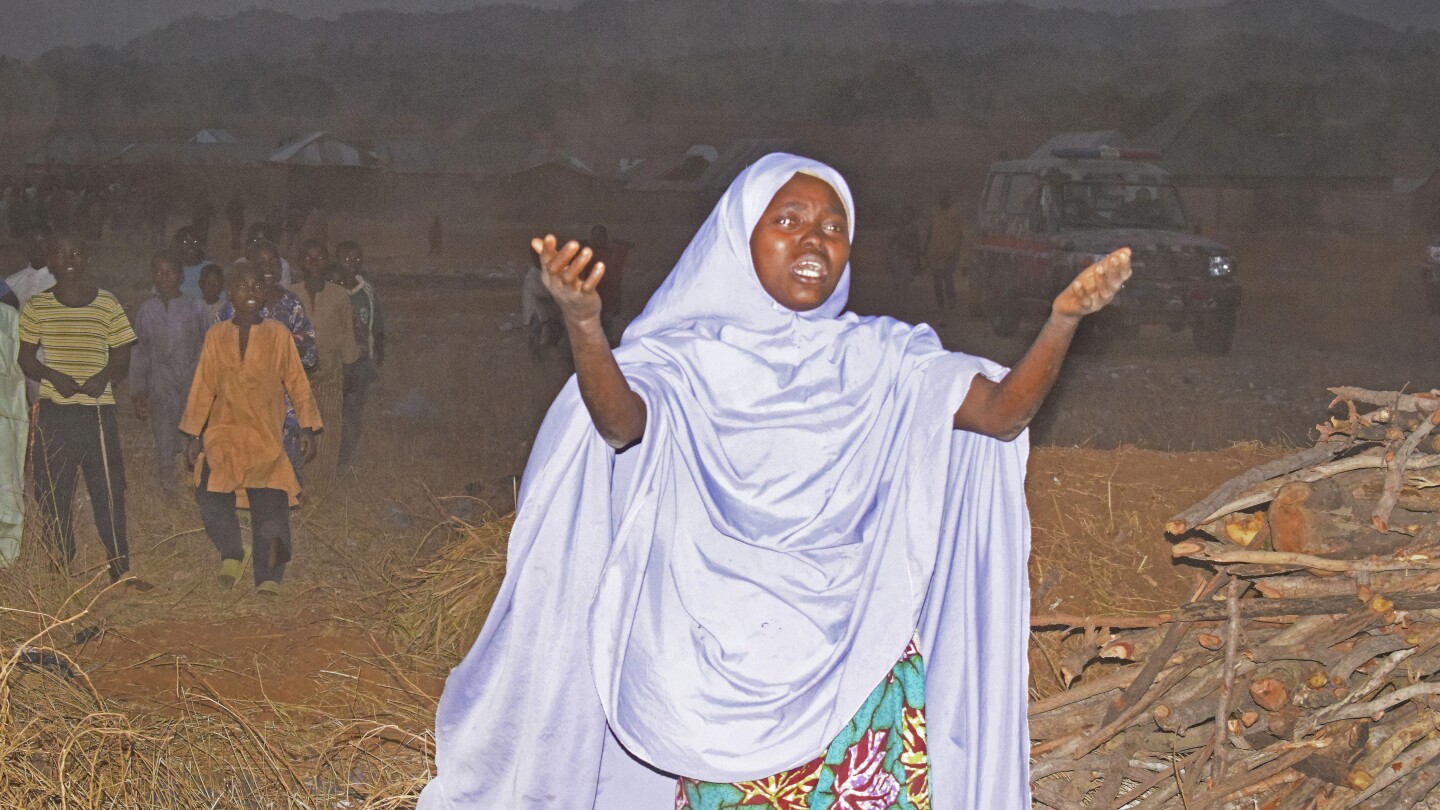ABUJA, Nigeria (AP) — The kidnapping of 287 grade school students by gunmen in northwestern Nigeria this week was only the latest in a slew of such raids since the infamous Chibok schoolgirls’ abduction by the Islamic militant group Boko Haram a decade ago.
Around 1500 students have been kidnapped in raids since 2014.
The kidnappings take place in the country’s troubled northern region, where relentless violence by insurgent Islamic militant organizations and by bandit groups with no particular ideology have crumbled communities and killed thousands of people.
While some of the Chibok school victims were believed to have been forced into marriage with militants, most of the kidnappings since then have been for ransom. Bandits also attack communities to force adults into labor on seized farmlands and mining sites.
Some of the raids have targeted colleges, such as a 2021 attack on Greenfield University in Kaduna State in which at least five students were killed when parents failed to meet ransom demands. But most victims have been schools for younger students.
Here is a closer look at the crisis in Africa’s most populous nation:
WHAT IS HAPPENING IN NORTHERN NIGERIA?
The impoverished and educationally disadvantaged northern region of Nigeria has been worst hit by a wave of crime and insecurity.
The government claims progress against Boko Haram and its splinter Islamic State in West African Province, but the groups remain active and have established bases, including in Niger State near Abuja, outside of their original northeastern birthplace.
But an even worse and seemingly intractable problem has arisen in the northwest where large numbers of armed gangs, called bandits, have taken control of swaths of territory, invading schools and communities to conduct mass killings and abductions.
They have seized mining sites and farmlands and forced rural people to labor for them. The Nigerian armed forces, fatigued from fighting endless internal conflicts for more than 10 years, have done little to stop the gangs.
The gangs threaten the country’s food security because they control parts of Nigeria where much of the country’s homegrown food is produced.
WHO ARE THE BANDITS CONDUCTING MASS ABDUCTIONS?
There has been no claim of responsibility in the latest attack, but it happened in an area where bandits are active and have attacked communities in the past.
The bandits generally are of the nomadic Fulani community, who initially took up arms to fight the ethnic Hausa communities in Zamfara State over access to land and water resources. But they have now developed into organized armed groups specializing in abduction for ransom and forcibly taking over farmlands and gold mines.
There are believed to be hundreds of gangs, each with scores of armed fighters.
WHY ARE THE ABDUCTIONS HAPPENING?
The abductions generally are aimed at obtaining ransom and have become a lucrative business, according to Shehu Sani, a former federal lawmaker from Kaduna, where the attack occurred on Thursday.
Schoolchildren are targeted because the bandits “know that it will evoke public sympathy for the pupils, and pressure will be mounted on the government to bow to their demands,” Sani said in a post on X.
The government does not admit it, but sources close to the negotiations say ransom payments are made by both families and state governments, Sani said.
Ransom payments and other illicit incomes, such as proceeds from seized farms and mines, have helped the gangs amass a massive arsenal of weapons strong enough to even down military planes.
Nnamdi Obasi, an advisor at Brussels-based International Crisis Group, said the willingness of desperate families, embattled communities and even the state governments to pay ransoms has “turned mass kidnapping into arguably the most lucrative criminal enterprise in the northwest zone.”
Affected communities often are in remote rural locations where the government is largely absent, making them vulnerable to attacks from bandits based in nearby forests.
HOW HAS THE GOVERNMENT BEEN RESPONDING?
While the federal government has taken an official position of armed response, some state governments such as those in Zamfara and Katsina have tried softer measures, such as negotiations and amnesty deals with the bandits.
Obasi said the failure of state and federal governments to apprehend kidnappers has added to a “climate of impunity” that “only enables more heinous atrocities.”
Some gang leaders have been killed over the years, including one recently in Kaduna, but that has only put a small dent in the problem. Enticing gang members to leave behind the lucrative business of kidnapping has proven difficult.
ARE THERE THREATS TO EDUCATION?
The states in northern Nigeria already have the country’s lowest rates of literacy, and high rates of children staying out of school.
The spate of abductions in recent years could affect the efforts of the government and development partners to encourage parents to send their children to school.
“Many parents in rural areas are now afraid of allowing their children to go to school,” Sani said. “This is a serious problem for basic education in Northern Nigeria.”

